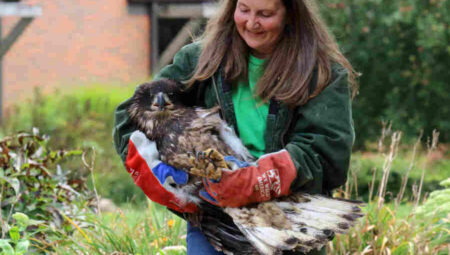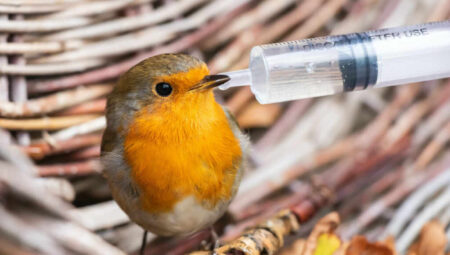Domestic birds, whether they’re feathered companions in our homes or part of a backyard flock, bring joy and charm to our lives. However, like any other living creature, they can face a variety of health problems that require our attention and care.
In this comprehensive article, we will explore some of the most common health problems that affect pet birds, including parrots, canaries, chickens and ducks. Understanding these issues is crucial for early detection, prompt intervention and ensuring the well-being of our avian friends.
Birds have unique and delicate physiologies that can make them susceptible to a range of health problems. While some avian problems may be specific to certain species or breeds, there are common health concerns that can affect all pets. Here are some of the most common health problems in pet birds:
1. Respiratory infections:
Respiratory problems are a major problem for birds, often due to exposure to draughts, cigarette smoke or poor ventilation. Common symptoms include sneezing, nasal discharge, wheezing and labored breathing. Immediate isolation and veterinary care is necessary to prevent the spread of infection within the flock or aviary.
2. Gastrointestinal disorders:
Digestive problems such as diarrhoea, vomiting and regurgitation may be caused by bacterial, viral or parasitic infections. Birds may also ingest toxic substances that cause gastrointestinal distress. A bird showing signs of gastrointestinal distress should be examined by a veterinarian for proper diagnosis and treatment.
3. Feather plucking and self mutilation:
Psychological stress or underlying health problems can cause birds to pluck their feathers or engage in self-mutilation behaviours. Identifying and treating the underlying cause, which could be boredom, loneliness or illness, is essential for the bird’s well-being.
4. Laying complications:
Female birds, especially those in breeding condition, may experience complications during egg-laying. These may include egg binding, where an egg becomes stuck in the reproductive tract, or dystocia, where the egg-laying process is difficult or painful. These conditions require immediate veterinary attention.
5. Mites and external parasites:
Birds can suffer from infestations of external parasites such as mites and lice. These pests can cause feather loss, skin irritation and discomfort. Regular cleaning and maintenance of the bird’s environment can help prevent infestations.
6. Obesity and nutritional imbalances:
Improper diets, high-fat seeds and excessive treats can lead to obesity in pet birds. Conversely, nutritional imbalances can result from a lack of essential nutrients. Both conditions can lead to a range of health problems, including liver, kidney and heart disease.
7. Beak and nail problems:
Overgrown beaks and nails can cause discomfort and difficulty eating or perching. Regular beak and nail trimming may be required and it’s best to have this done by a vet or experienced avian handler.
8. Avian pox:
Avian pox is a contagious viral disease characterised by wart-like growths on the skin, beak and eyes. It can be spread by direct contact or contaminated surfaces. Isolation and good hygiene practices are essential to prevent the spread of avian pox within a flock.
9. Feather mites and internal parasites:
In addition to external parasites, birds can suffer from feather mites and internal parasites such as worms. Regular veterinary checks and worming are essential to keep these problems under control.
10. Tumours and cancers:
Although less common, birds can develop tumours and cancers. These growths can be benign or malignant and may require surgical removal or other treatment.
11. Stress-related problems:
Stress is an important factor in the health of birds. Changes in their environment, social isolation or loud noises can all contribute to stress-related problems. Providing a stable and enriched environment is essential to minimise stress in pet birds.

12. Reproductive problems:
Both male and female birds may experience reproductive problems, including infertility and hormonal imbalances. These problems may require veterinary intervention to treat or prevent further complications.
In conclusion, pet birds can suffer from a wide range of health problems and early detection and intervention is vital for their well-being. Regular veterinary check-ups, a clean and stimulating environment and a balanced, species-appropriate diet can go a long way towards preventing and treating these common health problems. Bird owners should always be vigilant and educated about the unique health needs of their avian companions to ensure that they live happy and healthy lives in our care.




